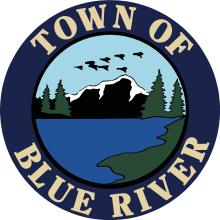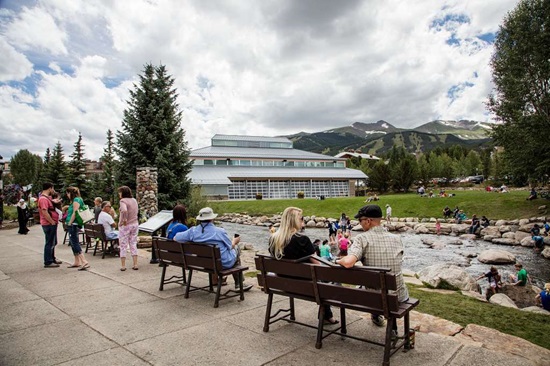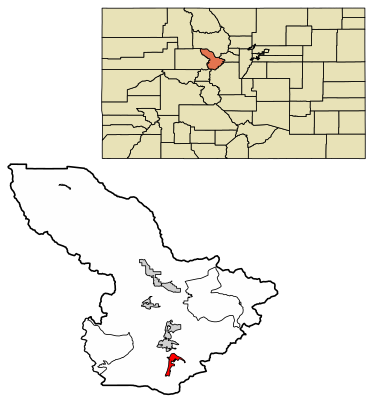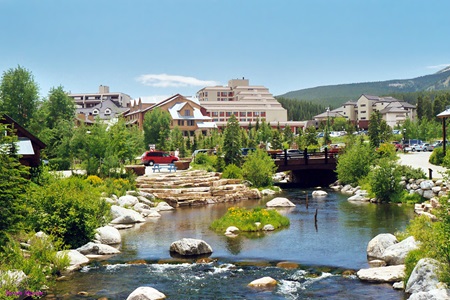
Blue River, Colorado (est. pop. 882) is the latest Colorado municipality to explore building its own broadband network with an eye on affordable access. The town is part of a trend that’s only accelerated since the state eliminated industry-backed state level protections restricting community-owned broadband networks.
Just south of Breckenridge in the central part of the state, Blue River is nestled in one of the more rural parts of Summit County. Comcast (Xfinity) enjoys a broadband monopoly, resulting in spotty access, slow speeds, and high prices. Locals also routinely complain that cell phone service remains spotty in much of the mountainous area.
In response, town leaders recently hired the consulting firm, NEO Connect, to explore the possibility of building a town-wide fiber network. According to a feasibility study presented to the Blue River Board of Trustees by Mayor Toby Babich, the construction of a fiber network serving every town resident will cost somewhere in the neighborhood of $13 million.

While that “may seem out of reach,” Babich recently told the board, “we believe with the right funding and partnership we can move forward with this project.”
The estimates for network construction range somewhere between $7 million to $24 million, depending on how much underground trenching work is required.
As noted by NEO consultants, “the impact of using rock-saw construction methods versus directional boring could reduce the capital costs by 41%, down to $7.954 million with the middle-mile costs.”
The town’s consultants also analyzed “numerous financial models to determine whether it is feasible for the Town of Blue River to build the middle mile fiber and fiber to the premise network,” concluding that “given that the Town only has 851 homes, the model is not feasible without grant or other subsidies, or some other form of revenue, rather than relying solely on internet services revenue or a revenue-share from the ISP.”

Based on the town’s invitation to negotiate (ITN), it seems clear town leaders are hoping to strike a public private partnership (PPP) with one or more private providers, and are eager to take full advantage of an historic influx of federal broadband stimulus funding. PPPs often come with less expense for the city, at the cost of less control over the final network and pricing.
“It’s all very preliminary at this point,” Babich said. “We’re applying (for grants) and crossing our fingers.”
Colorado is poised to receive more than $826 million in funding from the federal Broadband Equity, Access and Deployment (BEAD) program, made possible by the 2021 infrastructure bill.
State leaders say they intend to use the funding to ensure that 99 percent of Colorado residents have affordable broadband access by the year 2027.
That goal was greatly aided by the recent vote by the Colorado legislature to eliminate SB 152, a law crafted and lobbied to passage by regional telecom monopolies looking to hamstring frustrated communities’ looking to build better, more affordable, locally-owned telecommunications infrastructure.
FCC data indicates somewhere around 190,000 Colorado homes and businesses lack access to broadband, a tally that’s likely a notable underestimate given the notorious unreliability of federal broadband mapping data. There’s no shortage of smaller Colorado towns, just like Blue River, that have been left on the wrong side of the digital divide due to monopolization.

While the high cost of deploying fiber is often cited as the primary reason local providers like Comcast and Lumen (formerly Centurylink, Qwest, and U.S. West) haven’t expanded access uniformly, there’s been no shortage of federal subsidies thrown at the problem.
The state doled out $37 million in 2000 to US West to shore up broadband access as part of the state’s “beanpole project.” In 2009, the state spent another $100 million from the American Recovery and Reinvestment Act to expand broadband access to schools. But both projects fell short of the quest for uniform, affordable access to next-generation fiber.
Fast forward to today, where in addition to $826 million in looming BEAD funding, Colorado has received $170 million from the federal Capital Projects Fund, and $2.7 million from the NTIA's middle mile program. Hopefully this time, smaller rural communities like Blue River won’t once again find themselves left just out of reach.
Inline map of Blue River Colorado courtesy of Wikimedia Commons, Attribution-ShareAlike 3.0 Unported
Inline image of Blue River courtesy of Flickr user Steven Martin, Attribution-NonCommercial-NoDerivs 2.0 Generic
Inline of Blue River Plaza courtesy of the Library of Congress Archives, Public Domain Mark 1.0 Universal







